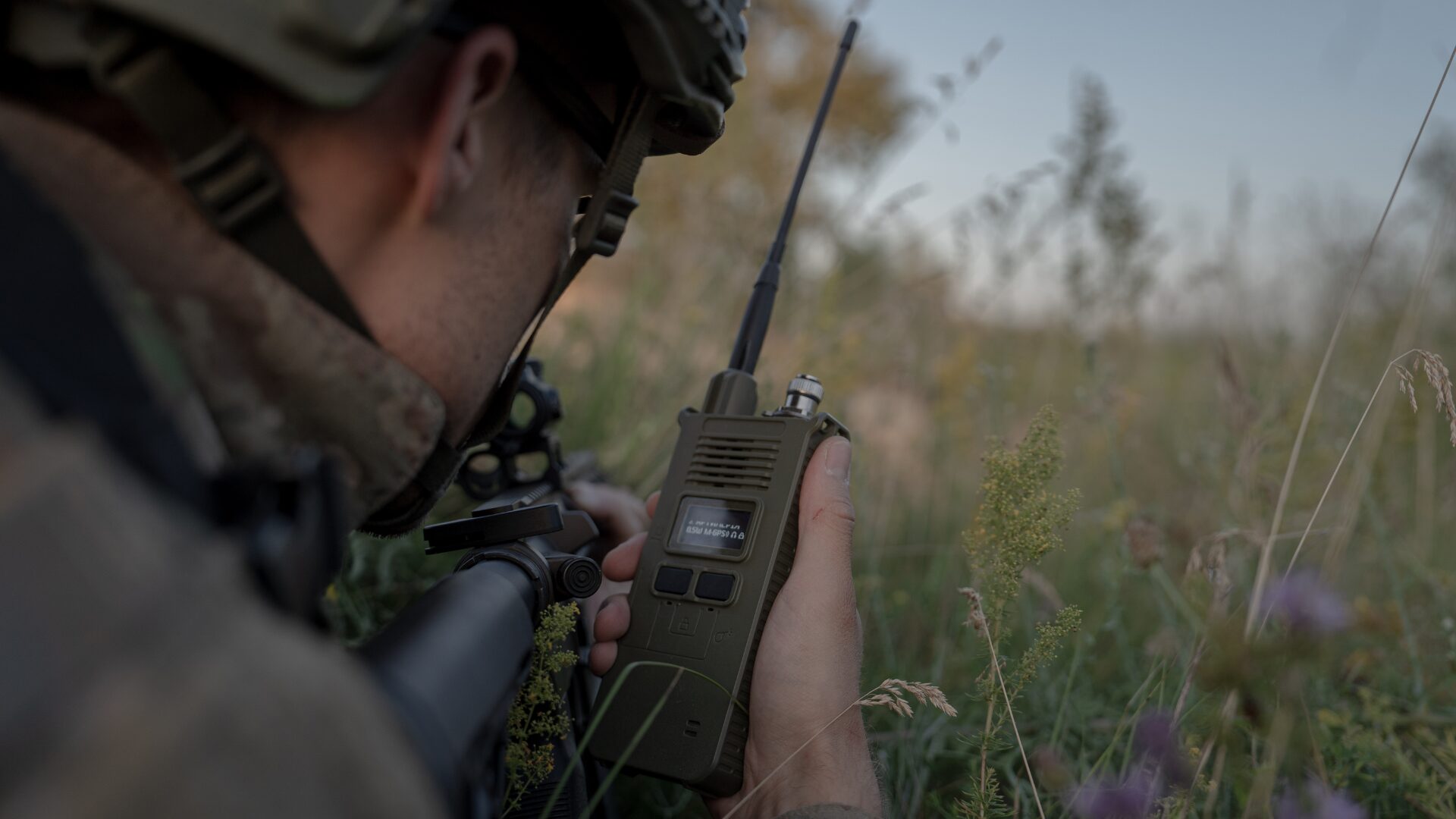18.08.2025
From the frontlines to Tallinn: A Ukrainian founder’s perspective on defence innovation

When Russia’s full-scale invasion began, Misha Rudominski’s reaction was immediate: “I need to do something.” That urgency has stayed. At first it meant delivering tools as quickly as possible, even if imperfect, to meet critical needs. As his work scaled internationally, the same drive has translated into raising standards, because “the more we grow, the more lives we can help protect.”
That mission has taken shape in HIMERA, which develops secure, self-healing communication systems designed to maintain performance under intense electronic warfare. Built on a modular architecture, the technology serves both military units and civilian first responders in disasters, blackouts, and border crises, with features such as mesh networking added in direct response to battlefield feedback.
This responsiveness is central to how the company operates. Instead of quarterly sprints and staged testing cycles common in civilian tech, Rudominski’s team reacts directly to frontline reports, sometimes arriving mid-mission. One example came from a signal commander who had to keep a soldier on a hill to connect two strongholds via separate radios; within two weeks, that feedback led to a firmware update enabling mesh connectivity. In three years, more than 80 firmware and 20 hardware changes have followed the same pattern, each version built because someone needed it immediately.
Collaboration and lessons to share
Working under such conditions has shaped Rudominski’s view on what it takes to build effective dual-use technology. He distils it into three lessons for other founders: build fast without compromising essentials, speak directly with end users, and stay anchored to the mission to avoid burnout. It has also influenced how he approaches collaboration, favouring partners who listen to actual needs and adapt, and steering clear of those focused solely on pushing their own solutions or chasing publicity.
Procurement is another area where Ukraine’s experience offers valuable lessons to others. Giving operational units greater say in defining requirements has led to faster and more relevant results than top-down models. Rudominski believes other countries could benefit from aligning innovation more closely with real-world demands.
When he joins the panel How Ukraine is Redefining Defence Tech at Defence Innovation Day in Tallinn, Rudominski is looking to exchange perspectives with Baltic peers on dual-use development, cross-border collaboration, and working within NATO structures. His message to the audience will be clear: “Now Europe and the democratic world are as much dependent on Ukraine, in its future security, as Ukraine is dependent on you. Both sides should act accordingly.”
That perspective extends to recent institutional changes in Ukraine. Rudominski welcomes the creation of the Unmanned Systems Forces (USF), calling it a turning point in the war that, combined with human determination, has enabled effective resistance against a larger adversary. The USF is a uniquely structured military branch, established in June 2024, that coordinates Ukraine’s use of unmanned aerial, ground, and naval systems in combat — the first of its kind globally.
Operating in a conflict where civilians are targeted also shapes his approach to International Humanitarian Law. He sees the principles of distinction and proportionality as daily ethical boundaries, guiding decisions from design to deployment. His systems are intended for uniformed defence forces and avoid features that could blur the line between civilian and military use, with reliable communications helping to prevent unintended harm by improving coordination.
More broadly, he aligns with the spirit of the Martens Clause, which upholds humanitarian principles and the dictates of public conscience even where no specific laws apply, and designs systems that are hard to abuse, easy to audit, and held to standards he wishes others would follow.
If you want to hear Misha Rudominski’s panel alongside other thought-provoking keynotes and take part in valuable networking opportunities, you can find more information and register for Defence Innovation Day here.
The event is organised by Tehnopol and the Ministry of Economic Affairs and Communications through the NATO DIANA Estonian Accelerator, with one session co-curated by Sparkup Tartu Science Park.

















